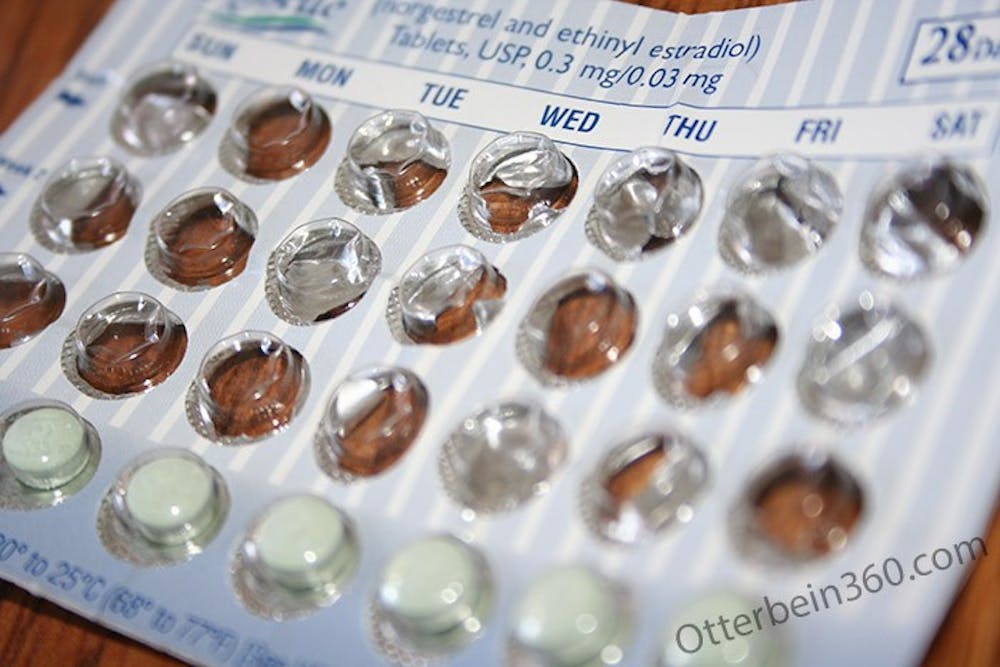Julia:
Ladies, let’s be honest at this point in our lives. We have to make many choices. We have busy, fulfilling lives that are
going to shape our futures.
I don’t know about you, but having a baby at this time is not ideal for my life. Since becoming a woman, I wanted to know the safest way around that: Enter birth-control pills.
I knew the time would come when sex would be an issue,
especially in college, and I wanted to feel safe.
Then, 58 percent of college women were using birth control pills as their method of contraception, according to the Center for Disease Control. Now a higher percentage of college women are using an intrauterine device.
Yes, condoms are an easy
option as well, but as some of you may know, sometimes things can just happen.
I can happily say that with birth-control pills, not only have there not been any babies, but there have also been lighter periods, far less cramping and clearer skin.
Periods are tough. Before the pill came into my life, I stayed home from school more often than I’d hoped while at home, I was immobile with a heating pad glued to my lower abdomen, and if forced to move, it came after my temper tantrum followed by crawling to my destination.
Yes, some serious risks come with taking birth-control pills, such as nausea, blood clots, strokes and heart attacks.
But these risks are small. Small enough for me to overlook them until symptoms of one came up, and so far, so good. Having a baby at this point in my life would throw a wrench into my plans, I would have to rearrange my entire life and everything I’ve worked for up until now.
I also have to consider the fact that if birth control pills were so dangerous and life threatening to a majority of people, doctors wouldn’t prescribe them and they wouldn’t even be an option.
We also have to remember that unplanned pregnancy is far more common than we would like to admit. Birth-control pills make it easy to go on living life like normal. Not having to worry about the cramping, heavy bleeding and pregnancy puts me at ease.
Olivia:
Women in the United States are not being educated on the negative effects the birth-control pill can have on them and their future children.
It’s time for women to advocate for themselves and increase awareness of what exactly they are putting into their bodies.
The most alarming part of using birth-control pills is that they are not only prescribed for their initial purpose — to prevent pregnancy — but they are also prescribed to young girls for acne treatment, to reduce cramping and for PMS relief.
The fact that girls younger than 14 who are having period cramps are prescribed an unnatural substance that affects their hormones and their body’s equilibrium to relieve temporary pain is alarming. Get a heating pad.
The pill is not all it is cracked up to be. Although it is the most commonly used form of birth control and often seen as a “quick fix,” a common myth is that it is 96 to 99 percent effective. In reality, The New York Times indicates that the pill, when used alone, is about 87 percent effective.
The fine print written on the box of the birth-control pill packets clearly states that possible negative side effects include heart attacks, strokes, blood clots and gallstones.
Women taking the pill had a lower libido, fewer orgasms and felt “less sexy” than women not on the pill, a survey by Indiana University reported.
This man-made substance can also affect the development of future children by minimizing beneficial bacterial flora in your stomach.
This means that during pregnancy, the woman’s ability to absorb essential nutrients for the child’s growth and development is negatively impacted.
In addition, children might be born with bacteria in their stomachs, making them predisposed to autoimmune disorders and attention deficit disorders.
If you take the pill simply to avoid pregnancy, other options are available that do not include chemicals and have less risk for side effects. These include condoms and vaginal rings.
If cramps are your concern, natural remedies like hot tea, yoga, swimming, heating pads or just natural movements and exercises significantly reduce the pain of menstrual cramps.
Ladies, before you pop that pill every day or give in to the easy cramp-reliever “miracle drug,” consider all the facts. It’s in your own interest and that of your future children.








